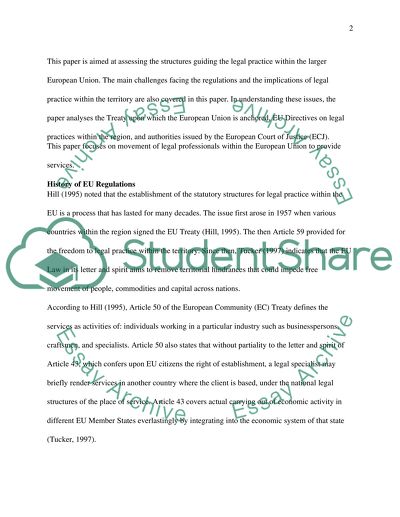Cite this document
(“Discuss and Examine the Free movement of Lawyers to provide services Assignment”, n.d.)
Retrieved from https://studentshare.org/law/1477631-discuss-and-examine-the-free-movement-of-lawyers
Retrieved from https://studentshare.org/law/1477631-discuss-and-examine-the-free-movement-of-lawyers
(Discuss and Examine the Free Movement of Lawyers to Provide Services Assignment)
https://studentshare.org/law/1477631-discuss-and-examine-the-free-movement-of-lawyers.
https://studentshare.org/law/1477631-discuss-and-examine-the-free-movement-of-lawyers.
“Discuss and Examine the Free Movement of Lawyers to Provide Services Assignment”, n.d. https://studentshare.org/law/1477631-discuss-and-examine-the-free-movement-of-lawyers.


